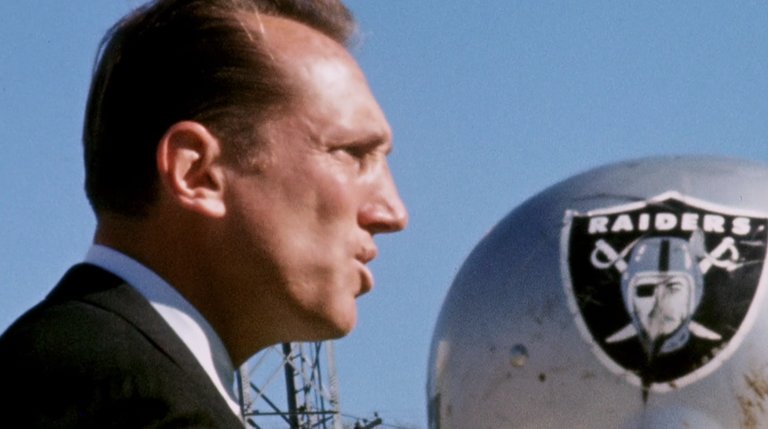Saw this documentary, here's my review. A Football Life has been running eight seasons and Al Davis was profiled in the 9th and final episode of season 1 in 2011.
Al Davis (1929-2011) was a great coach in his younger years. He saw the NFL and AFL to merge while serving as commissioner. He won three Lombardi trophies. He was a leader in racial equality.
Al grew up in Brooklyn, NY. He was a Yankees fan and a Dodgers fan, studying the styles of both teams to form a vision of how he would take the great qualities of both teams to model an organization. He decided to go into coaching and went through USC and the San Diego Chargers. In San Diego he worked for Sid Gilman, a coaching legend. At age 32 he became the youngest professional football coach in history when he joined the Oakland Raiders in 1963.
When Al started coaching the Raiders they had the most improved season year over year in history at that time. They went from 1-13 to 10-4.
"We were gonna stretch the field vertically. When we came out of the huddle we weren't looking for first downs, we didn't wanna move the chains, we wanted touchdowns. We wanted the big play, the quick strike. You say you will do it, you get the players to do it, then you do it. For those corner backs to know the Raiders are coming at you, they're coming at you on top and they've got the speed to do it, and they will do it."
"The old adage in football is take what they give you. That all sounds good to everybody but I always went the other way, we're gonna take what we want."
"Put pressure on the pocket. We do believe that this is a game, psychologically, of intimidation and of fear.... somewhere within the first 5 to 10 plays of the game, the other team's QB must go down, and he must go down hard. That alone sets the tempo for the game."
In 1966 Al became commissioner of the AFL. His intention was to whip the NFL. He wanted to take them on, become their equals, then become better than them. He was the last to know about the union of the two leagues and it pissed him off because he wanted the war. So he went back to the Raiders who had the most wins in the final 3 years of the AFL's existence.
In 1967 John Madden, Joe Blanda, Willie Brown, Gene Upshaw all joined the team. They won the AFL and went to Superbowl II.
In 1972 he became managing general partner of the team. He took care of his team and they became loyal. When this show was recorded there were about 20 Raiders from the 1960s who were still on payroll with the organization. There were feuds because he had it in his nature, apparently he and Marcus Allen didn't get along, but he ended up being the most frequent presenter at the football Hall of Fame by request of the inductees.
Madden became head coach in 1969 and achieved 100 wins quicker than any coach in history, they made the playoffs 8 out of those first 10 years. He had a direct line to Al and they worked well together.
There was a stigma about the Raiders as being a misfit team. Al had the charisma to recognize the important thing was performance, not personal nonsense or issues like race. This is good management because talented people can be eccentric and it is important to give them a chance, encouragement, leeway etc. He was good at recognizing the potential of players that were cast off by other teams. You can imagine the gratitude they had for the opportunity to prove themselves.
They were feisty, mean and short-tempered, all the elements you want on your team. Al's spirit transferred to the field. Just as he sued the league to move to L.A. the Raiders were fighting other coaches, other owners, other cities, other teams. Everything was a fight. It led to some good, memorable, historic football games.
As Al got older the wheels started to fall of the thing. The 2000s was a lost decade, tons of coaches, tons of losses. He passed away in 2011.
